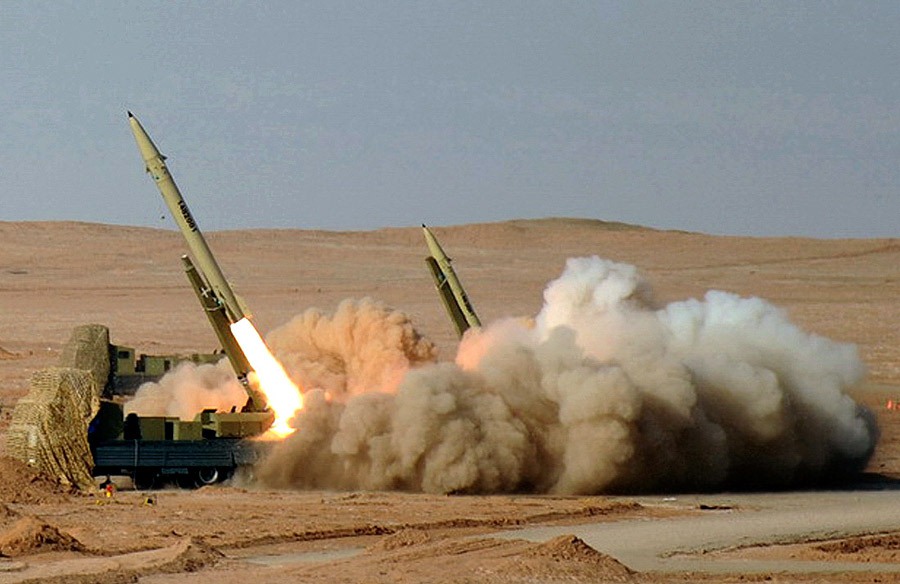
(Scypre.com) – Just hours after former President Donald Trump announced a brokered ceasefire between Israel and Iran, tensions erupted once again as Israeli officials accused Tehran of violating the agreement. According to the Israeli Defense Forces (IDF), Iran launched ballistic missiles and unmanned aerial drones toward Israeli territory, sparking renewed fears of a wider regional conflict. Though the IDF successfully intercepted the missiles before they struck populated areas, the alleged attack triggered emergency alerts and a swift escalation in rhetoric from both governments.
The ceasefire had been negotiated in a high-stakes series of communications led by Trump, who declared that “nobody will be hurt” and called the truce a diplomatic success. It was designed to pause a 12-day period of high-intensity exchanges, initiated after Israeli strikes on Iranian nuclear facilities reportedly killed over a dozen Iranian scientists. The terms included a phased de-escalation of military activity and the immediate halt of cross-border attacks. While Israel publicly accepted the deal, Iranian officials were more cautious in their statements, neither fully confirming nor rejecting the terms.
Shortly after the agreement was announced, reports surfaced of two ballistic missiles launched from western Iran toward northern Israel, alongside several drone incursions. Though Iran has denied responsibility, Israeli military officials claim the attacks represent a “blatant breach” of the agreement. Defense Minister Israel Katz ordered a counter-operation targeting military installations near Tehran and threatened deeper strikes “in the heart of the regime.” Eyewitnesses in Iran reported explosions near radar facilities outside the capital, although Iranian state media called these claims false and accused Israel of fabricating the incident to justify further aggression.
Iranian media insisted that no offensive operations were conducted after the ceasefire was announced, blaming Israel for continuing provocations. Tehran stated that any further response would be contingent on Israeli actions, but refused to confirm whether it had accepted the ceasefire in the first place. Meanwhile, tensions flared in southern Israel where a missile strike just before the truce went into effect killed four civilians in Beersheba and injured at least 20 more. Earlier in the day, Iran had also fired on a U.S. airbase in Qatar—an attack that caused limited structural damage but heightened alarm within U.S. Central Command.
Former President Trump, who had taken personal credit for the ceasefire, expressed outrage at the breakdown. Speaking to reporters en route to a NATO summit, he said both countries “don’t know what the f*** they’re doing” and accused leaders on both sides of sabotaging what he called “the greatest deal of the decade.” On Truth Social, Trump urged Israel to refrain from further attacks, insisting that the IDF should “stand down and stand proud,” as the ceasefire was “still holding if they let it.” Despite the heated rhetoric, Trump reportedly made private calls to Israeli officials asking for a temporary halt to retaliation while further diplomacy was pursued.
International reaction was swift. Qatar condemned Iran’s missile strikes while calling on both parties to resume negotiations. NATO, the UN, and the European Union issued statements urging calm and stressing the need for restraint. Meanwhile, oil prices spiked amid fears of disruption to shipping through the Strait of Hormuz, and analysts warned that an extended conflict could destabilize the global economy. Military analysts cautioned that if Israel proceeds with further operations in Tehran, the situation could spiral into a broader regional war involving proxy militias and strategic allies.
With the ceasefire effectively in limbo, both sides are locked in a volatile standoff. Israeli forces remain on high alert, and Iran’s Revolutionary Guard is reportedly mobilizing defensive systems around key installations. Whether diplomatic backchannels can prevent a full-scale return to hostilities remains uncertain. For now, the international community watches with unease as the fragile truce teeters on the edge of collapse.